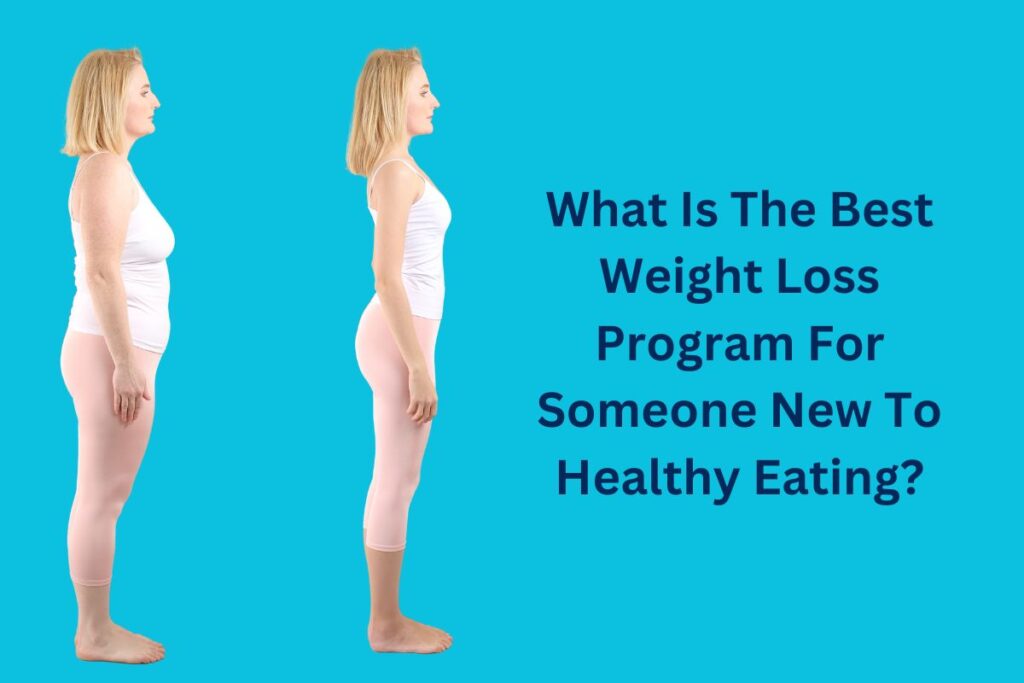Starting a weight loss journey can feel overwhelming, especially when new to healthy eating. With so many diets and programs, it’s easy to feel lost or confused. But here’s the thing: Healthy eating doesn’t have to be complicated.
The key is understanding the basics and making gradual, manageable changes to fit your lifestyle. Remember, this isn’t about quick fixes; it’s about creating lasting habits for a healthier you.
If you’re wondering where to begin, you’re not alone. Many struggle with where to start, what to eat, or how much exercise is necessary.
The good news?
You don’t need to take drastic steps all at once. Small, consistent changes and a balanced weight loss program can help you make real progress. In this blog, we’ll break down the essential aspects of weight loss, how to approach healthy eating, and how to choose a program that works for you.
Let’s dive in and set you on a sustainable health and fitness path.
Healthy Eating For Weight Loss: Key Principles
Healthy eating for weight loss isn’t just about cutting calories; it’s about fueling your body with the proper nutrients. By focusing on balanced meals and portion control, you can achieve a sustainable weight loss that improves overall health. Incorporating nutrient-dense foods like vegetables, fruits, whole grains, and lean proteins helps you stay full and energized throughout the day.
- Portion Control: It’s about what you eat and how much. Moderation is key.
- Balanced Meals: Aim for a mix of protein, healthy fats, and carbs in every meal to keep energy levels stable.
- Nutrient-Dense Foods: Choose foods rich in vitamins, minerals, and fiber to nourish your body and promote weight loss.
- Long-term Health: Healthy eating habits improve your weight and reduce the risk of chronic diseases.
These principles will help you shed pounds and establish healthier eating habits that last.
Why a Structured Weight Loss Program is Crucial for Beginners?
A structured weight loss program offers the support and guidance necessary to stay on track. Starting without a clear plan can be overwhelming, especially if you’re new to healthy eating. A structured program helps set realistic goals, track your progress, and make adjustments along the way, increasing the likelihood of success.
- Clear Plan: A step-by-step plan prevents confusion and ensures you follow the right path.
- Support System: Many programs offer access to nutritionists, fitness experts, and community support to keep you motivated.
- Trackable Progress: Being able to measure your success makes it easier to stay engaged and motivated.
- Accountability: Regular check-ins can help you stay focused on your goals and adapt as needed.
A structured program can make your journey more straightforward and successful.
What Is The Best Weight Loss Program For Someone New To Healthy Eating?
When choosing a weight loss program as a beginner, it’s essential to focus on features that offer flexibility, support, and education. Many programs claim quick results, but choosing one that prioritizes sustainable health rather than fad diets is essential.
- Flexibility: Look for programs that fit your lifestyle and offer room for customization.
- Support: Opt for programs with access to coaches or a community for motivation.
- Nutrition Education: A good program will teach you about healthy eating habits and help you make informed decisions.
- Realistic Goals: Choose a program that sets achievable, sustainable goals rather than extreme weight loss targets.
The right program will help you lose weight and educate you on making healthier choices long-term.
The Role of Physical Activity in Weight Loss
Regarding weight loss, healthy eating alone isn’t always enough. Physical activity is crucial in accelerating weight loss and boosting your metabolism. Regular exercise helps your body burn more calories and supports overall health. The key is finding activities that fit your fitness level and interests, making it easier to stick with them long-term.
- Exercise Boosts Metabolism: Physical activity helps increase your resting metabolic rate, burning more calories even at rest.
- Suitable Activities for Beginners: Walking, swimming, cycling, and light resistance training are great ways to start.
- Combination of Diet and Exercise: Pairing exercise with healthy eating gives you the best chance of losing and keeping weight off.
- Consistency is Key: Regular, moderate exercise is more beneficial than extreme workouts that may be hard to maintain.
Starting slow and building consistency will make exercise a natural part of your weight loss routine.
How to Build a Sustainable Eating Plan?
Building a sustainable eating plan is crucial for long-term success. Rather than relying on temporary diets, focus on making gradual changes you can maintain. A sustainable eating plan supports your health, balances your weight, and becomes part of your lifestyle.
- Fit Your Preferences: Choose foods and meals you enjoy to make your plan more manageable.
- Focus on Balance: Ensure each meal includes a variety of food groups for balanced nutrition.
- Long-Term Success: Sustainability is about creating habits you can keep for the rest of your life.
- Avoid Fad Diets: Steer clear of restrictive diets that promise quick results but are hard to maintain.
A well-planned eating strategy will help you achieve and maintain a healthy weight without feeling deprived.
Avoiding Common Pitfalls in the Weight Loss Journey
When starting a weight loss program, it’s easy to fall into common traps that can derail your progress. These pitfalls can cause frustration and even lead to quitting. Being aware of them helps you stay on track and achieve your goals.
- Unrealistic Expectations: Expecting rapid results can lead to disappointment and discouragement.
- Skipping Meals: This often leads to overeating later in the day and disrupts metabolism.
- Over-reliance on Exercise: Exercise alone can’t compensate for poor eating habits.
- Lack of Patience: Weight loss takes time; consistency is key to lasting success.
Starting your weight loss journey doesn’t have to be overwhelming. By focusing on healthy eating, regular physical activity, and following a structured program, you’ll set yourself up for lasting success. Remember, it’s about consistency, balance, and making sustainable changes.
If you stay patient and committed, you’ll lose weight and create healthy habits that will last a lifetime. It’s all about taking the first step and enjoying the process!



